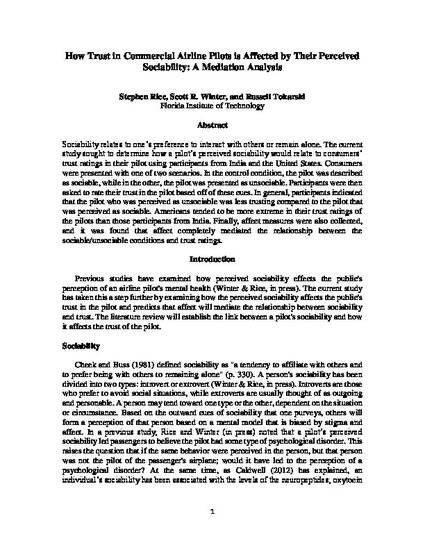
Sociability relates to one’s preference to interact with others or remain alone. The current study sought to determine how a pilot’s perceived sociability would relate to consumers’ trust ratings in their pilot using participants from India and the United States. Consumers were presented with one of two scenarios. In the control condition, the pilot was described as sociable, while in the other, the pilot was presented as unsociable. Participants were then asked to rate their trust in the pilot based off of these cues. In general, participants indicated that the pilot who was perceived as unsociable was less trusting compared to the pilot that was perceived as sociable. Americans tended to be more extreme in their trust ratings of the pilots than those participants from India. Finally, affect measures were also collected, and it was found that affect completely mediated the relationship between the sociable/unsociable conditions and trust ratings.
Available at: http://works.bepress.com/scott_winter/29/

Dr. Winter was not affiliated with Embry-Riddle Aeronautical University at the time this paper was published.